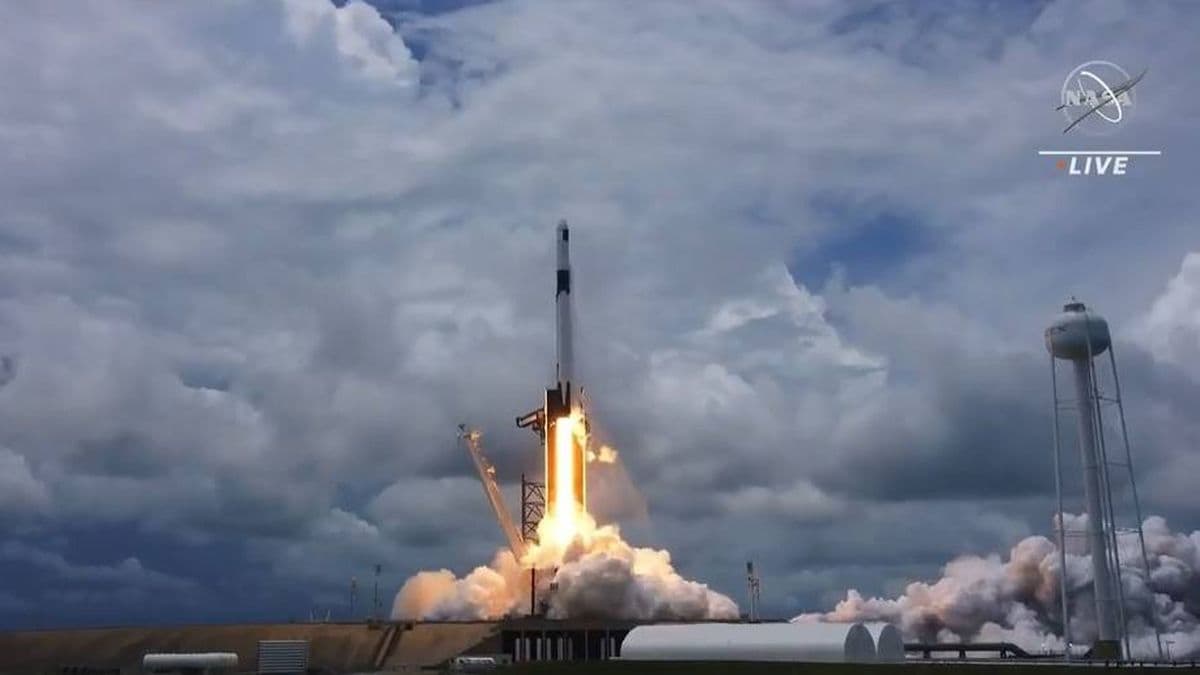SpaceX launched thousands of tiny sea creatures to the International Space Station on Thursday, along with a plaque-fighting toothpaste experiment and powerful solar panels.
The 7,300-pound (3,300-kilogram) shipment — which also includes fresh lemons, onions, avocados, and cherry tomatoes for the station’s seven astronauts — should arrive Saturday.
SpaceX’s Falcon rocket blasted into the hazy afternoon sky from Kennedy Space Center. The first-stage booster was new for a change, landing on an offshore platform several minutes after liftoff so it can be recycled for a NASA astronaut flight this fall.
The Dragon cargo capsule — also brand new — is delivering the first of three sets of high-tech solar panels designed to bolster the space station’s aging power grid. Astronauts will conduct two spacewalks later this month to help install the two roll-out panels alongside solar wings that have been in continuous operation for 20 years.
More power will be needed to accommodate the growing number of ticket-buying visitors, NASA’s space station programme manager, Joel Montalbano, said Wednesday.
The cargo includes samples of saliva and oral bacteria from dental patients that will be treated with toothpaste and mouthwash in an experiment aimed at keeping astronauts’ teeth and gums healthy in space.
“There’s no guarantee that the Earth methods will work in zero gravity,” researcher Jeffrey Ebersole of the University of Nevada Las Vegas said in a statement.
Also headed to the orbiting lab: 20,000 tardigrades, better known as water bears, and 128 bobtail squid, as well as chile pepper plants, and cotton seedlings.
Tardigrades can survive in drastic environments on Earth and even in the vacuum of space. Launched frozen, these microscopic extremophiles will be thawed and revived aboard the space station. By identifying the genes behind the animals’ adaptability, scientists hope to better understand the stresses on the human body during long space stays.
The baby bobtail squid are part of a study investigating the relationship between beneficial bacteria and their animal hosts.
This is SpaceX’s 22nd station supply run for NASA. The space agency turned to private companies to transport cargo and astronauts following the shuttles’ retirement a decade ago.
